The Sahel is one of the most important points of instability in the world
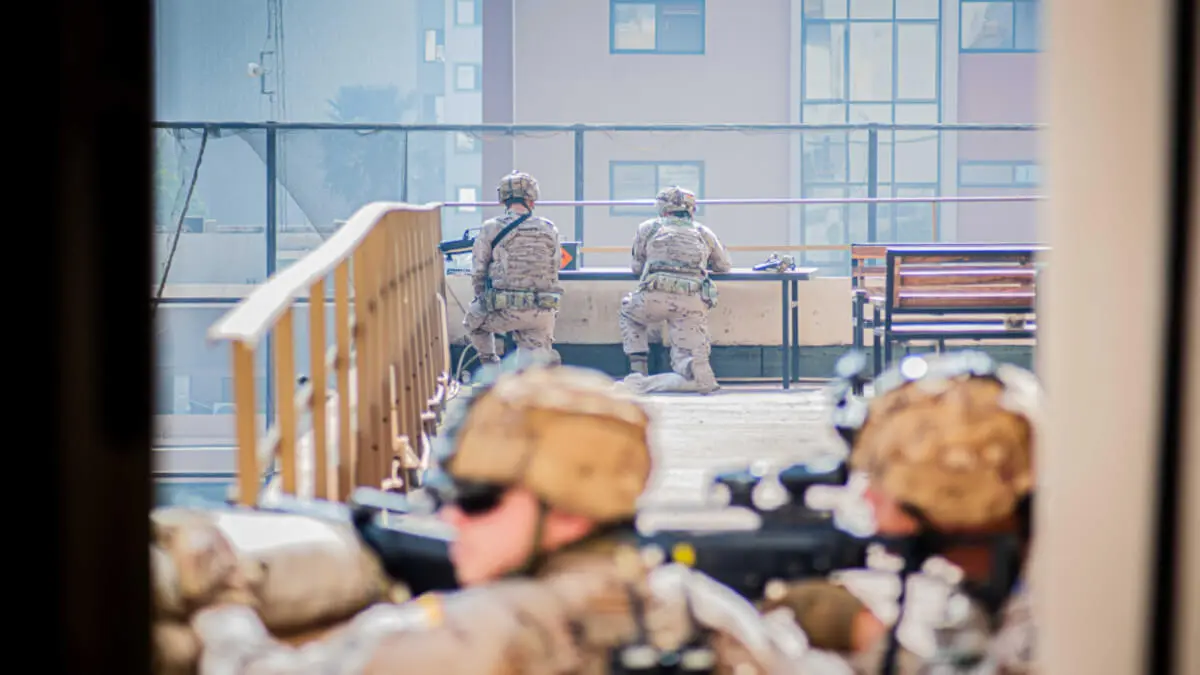
In the latest edition of "De cara al mundo", on Onda Madrid, we had the participation of Gustavo de Arístegui, diplomat and international analyst, who reviewed the current international situation.
In addition, the Spanish diplomat clarified the importance of keeping the Atlantic seaboard free of Russian or Chinese interference, especially in the Sahel region and Western Sahara.
Mr de Aristegui, what is going on, should we be concerned or are these isolated acts in very polarised situations? Although, in other European countries, such as Spain, for example, it is not as if the political leaders are saying fine and dandy things to each other.
I fear that these are not just isolated acts. We have been experiencing a degradation of public life in Western countries for many years. I would put the boundary of decline at about 20 years ago. If you look at the rise of populism, right-wing or left-wing, in different countries around the world, the trend is almost the same. Even in very consolidated democracies, despite the corruption problems they had, as in the case of Venezuela.
One can compare, for example, the Venezuelan political system, which was overthrown by the victory of Hugo Chávez in November 1998, when he began to govern in 1999; it was a democracy much closer to what we have in Europe, multi-party, with more than two groups in Parliament, and with an incorporation of former political rivals of different signs. In Venezuela there was not just one liberal party and one conservative party, as is the case in much of Latin America. There was a social democratic party, fully homologated with its political family.
There was a Social-Christian party, fully in line with its political family. Then there were parties further to the left, some further to the right. There were even guerrilla terrorists, reconverted into a political party, who were accepting the political system and had entered Parliament. When the corruption began, which began above all with the Democratic Action Party, that is, with the Venezuelan Social Democratic Party, which is the party with the most cases of corruption, let us not forget. Two of the most emblematic presidents of the Venezuelan Social Christians, Copey's Luis Herrera Campins and Rafael Caldera himself, died with the same assets they had throughout their political lives.

This was not the case with Jaime Lusinchi or the illustrious and nefarious Carlos Andrés Pérez. Having said that, what begins to be questioned is the politicians, then the parties, then the entire political class, obviously by extension. Finally, the institutions and, finally, the democratic system itself are called into question. And this is being imported into Europe. We have a society bombarded with an excess of information, with an education that is not the same as insufficient information, with a ruling class that is no longer a political elite, but a ruling class that is of increasingly poorer quality. We see this all the time, both in terms of access to the civil service and in terms of those who dedicate themselves to politics.
If we compare the average education, diplomas, experience and prestige of the MPs of the transition or the governments immediately after the transition with those of today, we only have to look at the CVs. This phenomenon, which seems unconnected with these phenomena of violence, has generated a polarisation in societies because the lack of training leads to the polarisation of societies.
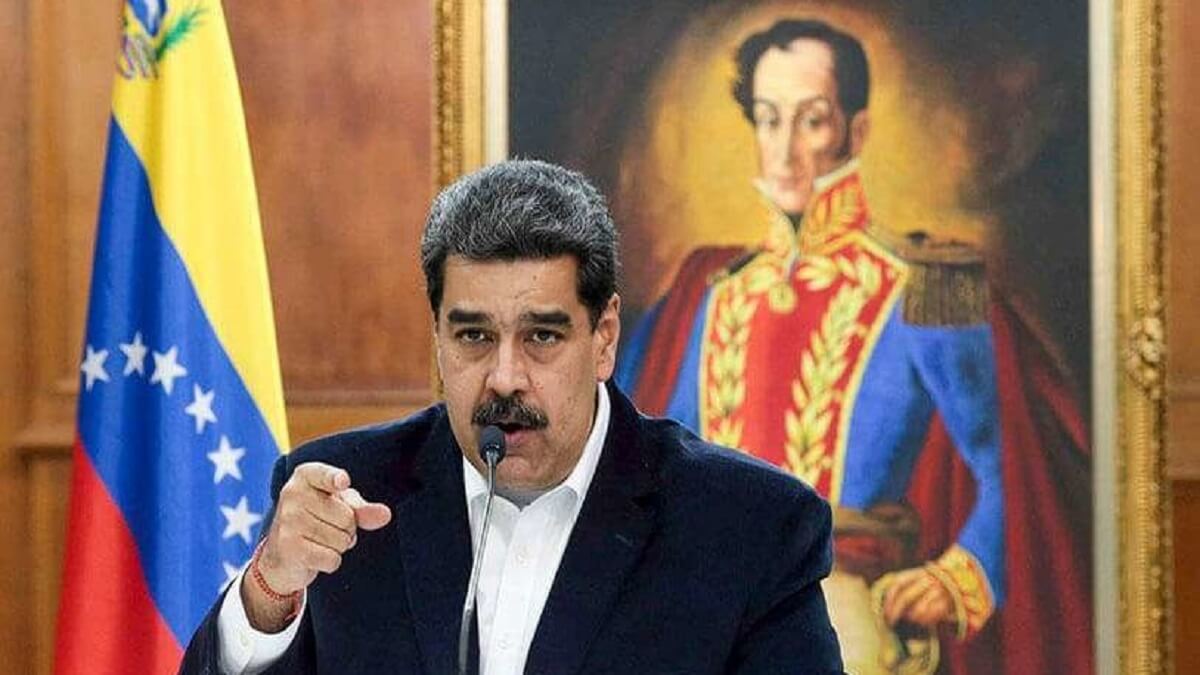
Changes and polarisation that are even reaching the United States, right?
Yes, it is. Even in the United States, when it was said that it was impossible to break the two-party system, we announced, and I think we did it in this programme many years ago, saying that the extremists could not create new parties but what they would do is penetrate the existing parties, colonise them from the extreme left in the Democratic Party and from the extreme right in the Republican Party and that is exactly what has happened in the Republican Party with two different and successive movements, first the Tea Party and then Trumpism and on the part of the Democratic Party the almost Stalinist extreme left represented by subjects such as Bernie Sanders, Alejandra Ocasio-Cortez, who are very populist by the way, Cori Bush, Ileana Omar, etc.
This means that this low-quality political class has no arguments about management, the real problems of society and can only ride or surf the confrontation to stay in power. This is transferred to society, this tension, this tension ends up inspiring the most radicals and this ends up generating attacks. It should not be forgotten that in Germany there have been very serious attacks against candidates of the CDU party, which should not be forgotten either.
And we must not forget that this man, who seems to be "obviously mentally disturbed" because of his ideological fluctuations, is today a militant on the left in Slovakia, today he is against a candidate who is on the European nationalist right despite his social democratic past and that it is this "apparently mentally disturbed person of radical left ideology, anti-Russian in this case", who has committed an attack, a thwarted assassination.
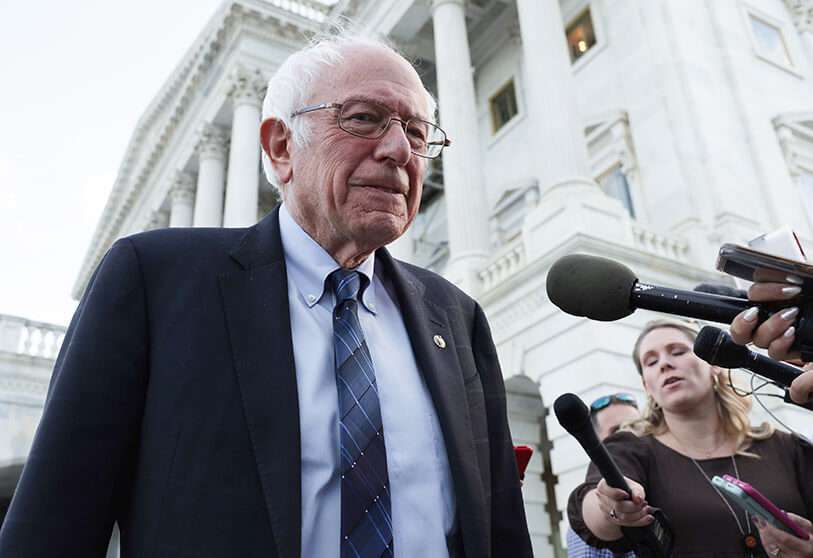
This attack by authoritarian populisms of the right and left on liberal democracies consolidated after the Second World War has tools that democracies should defend themselves against. Should we avoid impunity or insults or manipulation, the bastard use of these social networks by these people who want to seize power at any price?
Let's go one step further. Democracy is shaped by elementary principles, one of which is the separation of powers and the checks and balances between them. Institutional strength is the fundamental pillar of a democracy.
If institutions are called into question, and unfortunately in many European countries, including Spain, institutions are being called into question and their prestige is being bombarded, on the one hand, those that are not controlled are attacked and discredited, and on the other hand, those that are controlled end up discredited because they are used for partisan purposes. This is what must not happen, because a democracy and its love of freedom does not mean that it is weak. Democracy must have the greatness to apply justice and not revenge, even against those who seek to destroy it.
But that does not mean that those who try to do so should not be punished to the full extent of the law. If we do not have as a fundamental principle that democracy must be strong, with full respect for fundamental rights and freedoms, we are mistaken about what a democracy is. Let us not forget that traditional dictatorships, throughout the 20th century, were based above all on ideologies, even if they had a personality cult and even if an emblematic leader emerged, riding on a specific ideology.
The case of Stalin, who obviously invented Stalinism on the basis of communism, Mao with Maoism, Nazism and fascism with Hitler and Mussolini at the helm respectively. However, in the 21st century dictatorships and autarchies are dispensing with ideologies or putting ideologies in second place.
Two types of new authoritarian regimes are emerging. Those that are already installed on the basis of regimes that are authoritarian at their core, such as China, where communist ideology is indeed still present, but is overshadowed by the importance of the figure of the current president Xi Jinping, placing more emphasis on the president's obedience and personality cult than on the system and ideology.
The same is true of Russia. Although Russia is obviously not a communist regime and the Communist Party is not at its best, although it is in the president's coalition government, it is an heir to that regime and consequently the authoritarianism practised by Vladimir Putin is authoritarianism, the continuity of Soviet dictatorships.
On the other hand, however, a different phenomenon is taking place in the West. That is, from democratic ideologies, whether from the centre right or the centre left, and certainly from the extreme left and the extreme right even more so, but these have not yet come to power in a very clear way in Europe, many political leaders who come to power end up adopting populist and authoritarian positions, and populations living through times of extraordinary uncertainty, economic suffering and panic, often due to pandemics or wars or inflationary crises that have destroyed the purchasing power of our middle classes, end up seeking the security of the "strong man" and this ends up consolidating these autarchies, these authoritarian regimes.
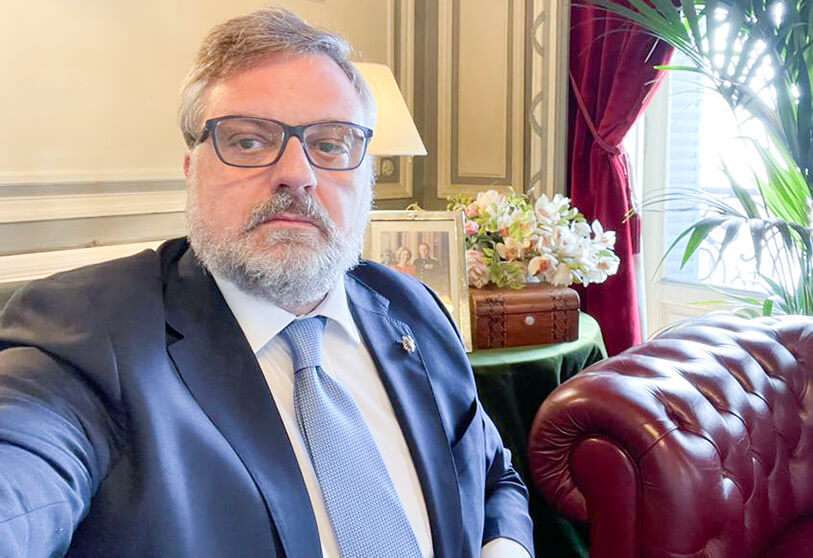
We must bear in mind, Mr De Arístegui, and the communiqué does not hide this, the intention of China and Russia to impose, to establish a new international order, leaving the West, the United States and, I understand, the European Union aside. We have to be very aware because the conflicts in Ukraine or, for example, in Gaza are also being used to weaken the West.
There is no doubt about it. Let's see, let's mix geopolitics and geoeconomics. Why do I say authoritarianism and autarchy? Because one belongs to geopolitics and the other to geoeconomics. Authoritarian regimes have to combine both in order to succeed in their endeavour.
First, authoritarianism as a political formula and second, autarchy as an economic formula, because economic isolation is something that the middle classes, devastated by cheaper labour in mass-producing countries such as China and to a lesser extent India or textile countries such as Bangladesh and others, also end up generating this deep concern among the European middle classes, who are looking for extremes that protect them from this uncertainty.
This new international order is worrying because very clear lines are being drawn in the world. There are two blocs that have not existed since the fall of the Berlin Wall and the implosion of the Soviet Union, in which we have a bloc that is beginning to be led, above all, in the geo-economic world, but much less so in the ideological world through its investments, trade and the indebtedness of the satellite countries, in terms of trade and investment, which is China, and on the other hand Russia, which despite the apparent weakness of its economy, has been extraordinarily resilient and has shown a resilience that no one expected with regard to the sanctions imposed for its brutal war of aggression against Ukraine.

If there is a world that orbits around these two great axes, above all China and Russia, it is all the most tyrannical regimes on the planet: Cuba, Venezuela, Nicaragua and the most radical leftists who are, shall we say, revolving around the Sao Paulo Forum movement. These are joined, in North Africa, by countries like Algeria and Libya that have their own internal problems, which are swinging in one direction or another, and the left that are governing in still democratic regimes that are drifting worryingly towards extreme left-wing populism, as in the case of Chile or the Peruvian chaos, or the case of the president, formerly a guerrilla, and let us say aligned with the theses of the most radical European and world left, as in the case of Gustavo Petro.
The West is completely weakened by an internal polarisation that weakens it even more, having been dealt two very hard blows against its credibility: the pandemic and the poor management of the pandemic by many Western countries. And on the other hand, the dismal reaction of the European economies to the inflationary crisis catalysed by the war in Ukraine.
This is the economic and geopolitical situation in which we find ourselves at the moment and it is an explosive mixture because we are approaching crucial elections in Europe, the importance of which we are not gauging in Spain, because we are giving it a domestic political reading, which is a very serious mistake in my opinion, because we are immersed, we are integrated in the European Union and in the European Union there are very worrying movements, extreme left-wing populism is strongest in Spain, but not only in Spain, and extreme right-wing populism is very strong in the centre and in the east of Europe, and is increasingly moving northwards.
As the credibility of democracy erodes and Europe moves more towards political polarisation, the strength, the prestige, the weight of Europe in the world will diminish exponentially. There is a stagnation of GDP per capita in some of Europe's major economies, which is a subject that is not talked about and is "an open secret".
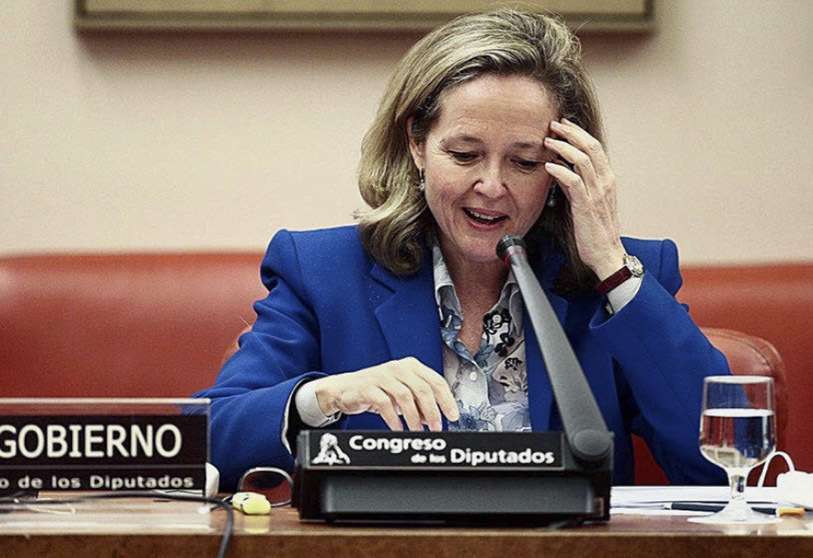
Spain is a country that has been stagnating in its GDP per capita levels for 20 years and in relative terms this means that we have been passed by them all. Twenty years ago we were richer than Cyprus, Ireland, Malta, all the Baltic countries of course, many of the eastern countries, but we were also richer than Israel and today Ireland is four times our GDP per capita, we have been overtaken in GDP per capita by Cyprus and Malta, which were practically ruined in 2008 to 2012.
Israel is infinitely richer than us in terms of GDP per capita, and the Baltic and Eastern European countries have already caught up with us. This should be a very clear alarm bell for our leaders and stop focusing on issues that are not only sterile, but also detrimental to the future of our country.
These countries have indeed passed us like a rocket, not like a motorbike. Finally, Mr de Aristegui. You mentioned African Sahel countries. The Spanish and European presence in Mali is coming to an end after the Russian and Algerian-led coups d'état in Mali, Burkina Faso and Niger. This situation is very worrying because this stability is our stability. There is a very important initiative on the part of some of these countries with Morocco and the United States to strengthen the Atlantic front, to allow them to trade their products so that they can strengthen their institutions and economic and social progress. We need to pay much more attention to what is happening in the Sahel, which is our backyard, and a destabilisation of North Africa would be very worrying.
The Sahel has become one of the most important sources of instability, violence, terrorism, organised crime, trafficking in drugs, arms and human beings on the planet, i.e. it is a huge wasteland of principles and values of law.
It is very serious and responsible that we cannot see the importance it has for Europe and for Africa because the irradiation of violence, criminality and instability northwards and southwards is evident, and the more instability there is in the Sahel, the more instability goes northwards, southwards, eastwards and westwards because it is not contained.
Right now the Moroccan Sahara is on the side of the West. If things were to go the wrong way and there were to be a misnamed "Independent Sahara", which would be an Algerian province, Chinese and Russian air bases would be set up in the cities of Dakhla and Laayoune the next day.
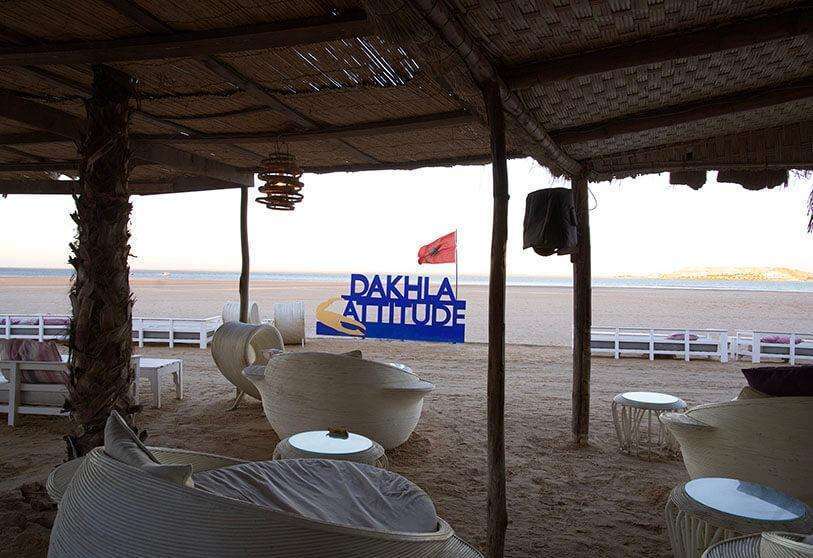
That is three days by warship from the coasts of the United States, a few hours by ship from the coasts of the Canaries, minutes by fighter plane from the Canaries, and only a few hours by bomber from the East Coast of the United States. This is perfect geopolitical suicide in every sense of the word, and this is a consequence that must be measured and assessed in a profound, serious and dispassionate manner, because what is happening in Burkina Faso, Mali, Niger and Chad affects us to the core.
The fact that the confrontation with France, the loss of prestige of the United States, the flight of troops from both sides, the loss of weight of even Canadian companies that have been able to sail to Cuba in the midst of the US economic embargo, are also losing important positions throughout the Sahel. But they are now being replaced economically by China and are being replaced geostrategically by Russia, either by private mercenary contractors or by the presence of official military advisors.
This is the reality we are living through, apart from the increasingly worrying expansion of immense countries that are practically impossible to control in which traffickers and criminals of all stripes are at ease and where the importance, weight and danger represented by Daesh and al-Qaeda in the Sahel is growing every day.









